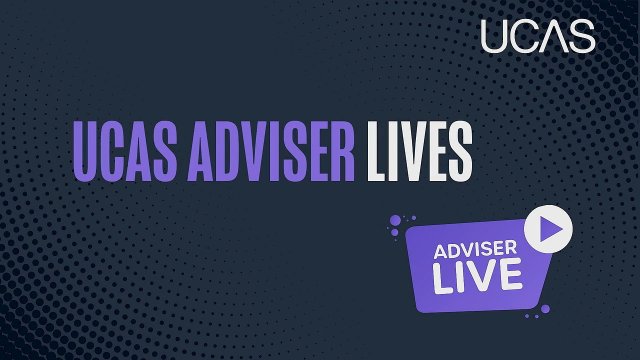What is changing with personal statements?
Personal statements are changing from one longer piece of text to three separate sections, each with a different question to help shape the focus for students' answers. Each section will have a minimum character count of 350 characters, which is clearly labelled on the question boxes, along with an overall character counter, to ensure students know if they're on track. The new web page for submitting the personal statement will also feature helpful on-page guidance for each question.
The new questions are as follows:
- Why do you want to study this course or subject?
- How have your qualifications and studies helped you to prepare for this course or subject?
- What else have you done to prepare outside of education, and why are these experiences useful?
What isn't changing?
- The personal statement will still be 4000 characters in total; this includes spaces.
- The content of the personal statement will remain broadly the same - it will just be split across three sections rather than one longer piece of text. The expectation for what students need to cover within the personal statement is mostly unchanged from current guidance.
Supporting equal opportunities for all students
In our commitment to equity and inclusion, we believe that every student deserves a fair chance to articulate their unique journey, aspirations, and potential. Scaffolding questions level the playing field, providing clear guidance and structure for all applicants, regardless of their background or prior experience with essay writing.
Scaffolding questions offer students a roadmap, breaking them down into manageable parts. By providing specific prompts, students gain clarity on what to address, fostering focus and coherence in their writing. This ensures that each aspect of their experiences and goals is thoughtfully explored and articulated.
Who did we consult?
We engaged with a diverse spectrum of voices, including over 1,200 UK and international students, alongside input from 170 teachers and advisers, and representatives from over 100 universities and colleges. Additionally, we collaborated closely with governmental bodies, regulatory agencies, and charitable organisations across the UK.
To ensure the highest quality, we partnered with an external research agency to rigorously test the new template, guidance, and wording.
The results spoke volumes:
- When surveyed during the research phases of the proposed personal statement changes, over half the students UCAS spoke to found completing the three questions "very easy" or "easy".
- Admissions teams said it made it easier for them to assess applications and more confident that they will receive the information they need to make decisions.
- Applicants who don't have school support - for instance, mature students - will find it easier to complete their personal statement successfully. This will even the playing field for widening participation, ensuring consistency across all personal statements no matter what level of support students have access to.
- Most advisers preferred the new format and said it would enable students to provide more complete and detailed statements, with the majority of advisers surveyed as part of the research stating they were "very confident" or "extremely confident" that the questions clearly convey what is needed for each answer.
What are students expected to include in their answers?
The three new questions will enable students to talk about why they're interested in the course they're applying to, linking their academic and extra-curricular experience to their chosen course. The personal statement is an opportunity for students to show admissions staff evidence that they're passionate, curious and knowledgeable about the subject area they're looking to study further and have the relevant skills and potential to be a great student who has a genuine interest in the subject and a desire to learn more. Students may feel an example could fit into more than one section — there's no right or wrong section to include something in, the important thing is to explain why they're including it and what they've learned from it.
It's important to note that any examples given by UCAS are merely guidance, and not everything suggested needs to be included in every personal statement. Requirements may differ for each university or college, as well as depending heavily on the course.
-
Question 1: Why do you want to study this course or subject?
-
Question 2: How have your qualifications and studies helped you to prepare for this course or subject?
-
Question 3: What else have you done to prepare outside of education, and why are these experiences useful?
FAQs for 2026 personal statements
-
Will the new three personal statement questions be assessed separately by admissions staff?
-
Are any of the questions more important or weighted more highly?
-
What are the new three questions?
-
Does each answer have to be the same length?
-
When are personal statements changing?
-
What if students are applying for dual honours or multiple courses?

